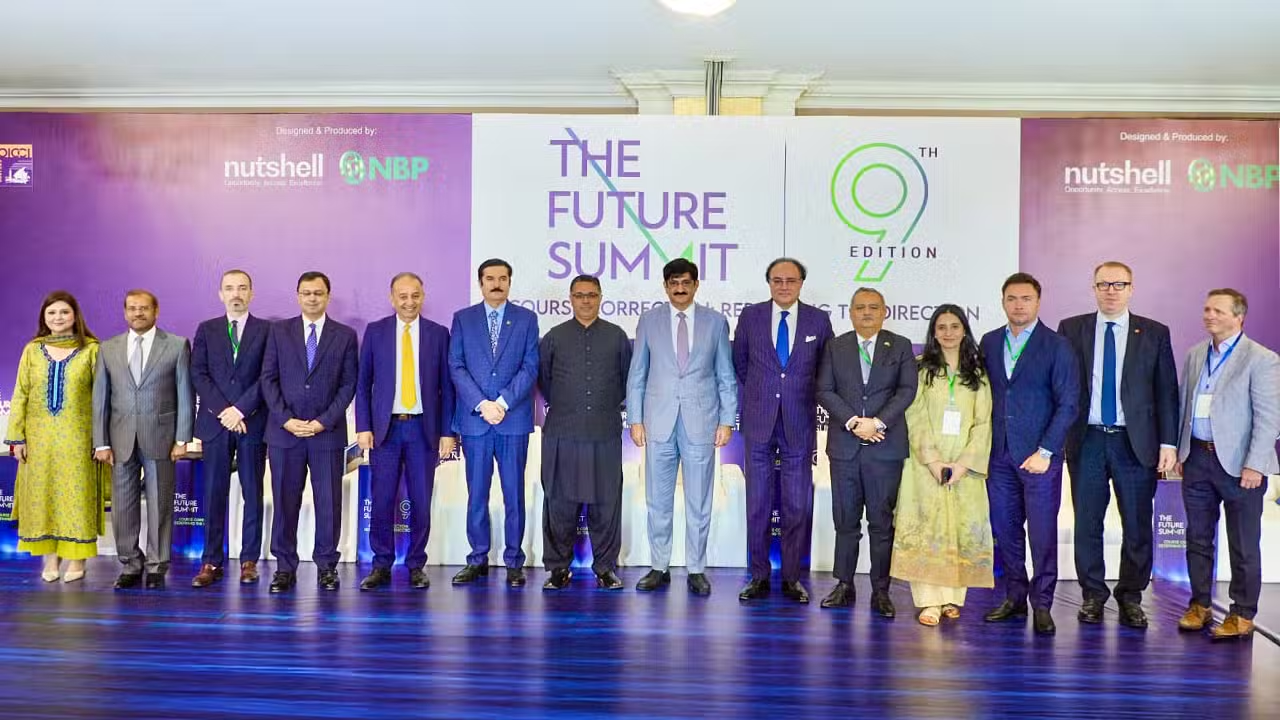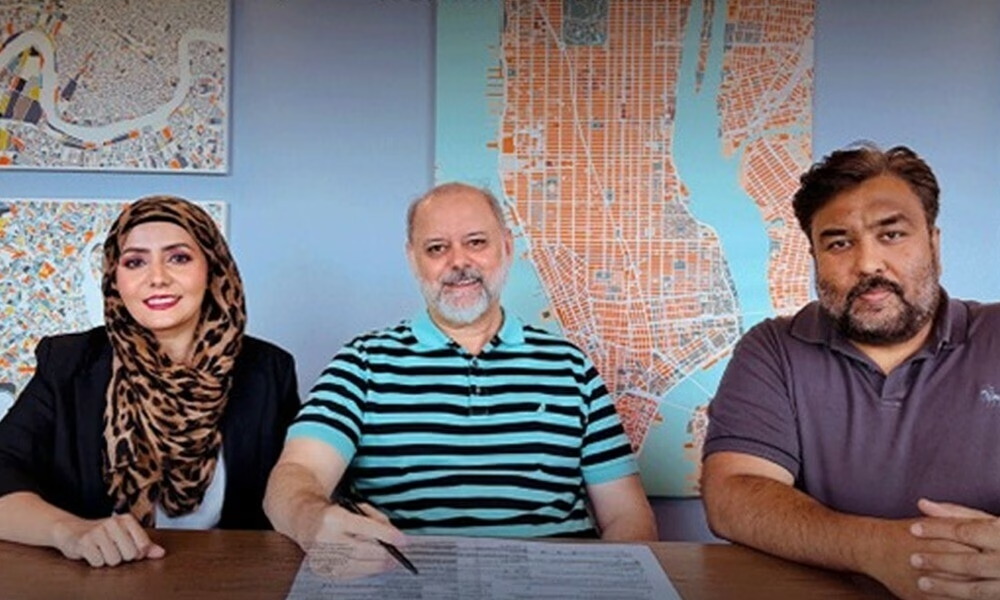The Future Summit 9th Edition opened with a powerful message: Pakistan is standing at a turning point where economic instability, climate challenges, and global technological shifts demand bold course correction. The event, co-hosted by the Nutshell Group and the National Bank of Pakistan, brought together policymakers, economists, business leaders, and international experts to explore how the country can adapt to a rapidly transforming world.
From the very first session, The Future Summit 9th Edition highlighted the urgency of rethinking Pakistan’s long-term direction. Leaders emphasized that survival in today’s global economy requires more than incremental reforms—it requires a mindset shift, rapid modernization, and a consistent policy framework that inspires investor confidence.
Global Insights and Local Realities
A major theme of The Future Summit 9th Edition was the connection between global forces and Pakistan’s local economic trajectory. In a fire-side conversation on macroeconomic shifts, international experts explored how global trade disruptions, geopolitical fragmentation, and emerging markets are reshaping opportunities for countries like Pakistan. Speakers stressed that constant disruptions now coexist with long-term planning, making it essential for Pakistan to build resilience while also positioning itself competitively.
Panelists from Pakistan’s corporate and financial sector echoed this view. They emphasized the need for diversified markets for both imports and exports. This diversification, they noted, protects economies from unpredictable global tensions. Several speakers pointed out that Pakistan’s limited value-added exports and thin profit margins are barriers to growth, making policy reforms and infrastructure investment essential.
Defining Pakistan’s Growth Story
One of the most anticipated discussions of The Future Summit 9th Edition centered on Pakistan’s potential new growth story. Leaders from finance, technology, insurance, and manufacturing explored how productivity, governance reforms, and digital financial inclusion can unlock economic potential.
Stable policies and stronger international trade agreements emerged as key priorities. Pakistan currently has only one major effective Free Trade Agreement, and experts urged the government to expand trade partnerships to increase export volume. Speakers also highlighted the transformative role of technology, noting that artificial intelligence can guide better decision-making, enhance customer experience, and upgrade business processes—if adopted strategically.
Another recurring point was the rising importance of global alliances. Several business leaders stressed that the Middle East and North Africa (MENA) region is becoming more relevant for Pakistan’s economy and is willing to invest in high-growth sectors. Harnessing this opportunity, they argued, requires regulatory clarity, market stability, and strong economic leadership.
Technology, Intelligence, and the Digital Future
A key focus of The Future Summit 9th Edition was the evolution of Pakistan’s digital economy. Experts in technology and digital infrastructure discussed how businesses around the world are moving from automation to intelligence—systems that not only execute tasks but also interpret data, predict outcomes, and support strategic decisions.
The conversation highlighted global investment trends, revealing that emerging technologies have attracted more funding in 2025 alone than in entire previous years. This underscores the rapid global race toward digital modernization. Speakers argued that Pakistan can benefit immensely by bypassing outdated systems and directly adopting modern, intelligent frameworks.
Cloud technologies, AI-driven analytics, and advanced platform models were identified as central tools for improving operational efficiency, strengthening cybersecurity, and enabling innovation at scale. The panelists insisted that successful digital transformation is not only about technology—it’s about shaping business models that touch lives, improve livelihoods, and drive inclusive growth.
Reputation, Influence, and Economic Diplomacy
The final conversation of Day One of The Future Summit 9th Edition turned to reputation and trust—two intangible yet powerful pillars that determine a country’s place in the global economic system. Speakers explored how strategic communication, transparency, and institutional stability shape a nation’s credibility.
Experts emphasized that Pakistan must rebuild its international reputation through consistent reforms, stronger governance, and clearer economic messaging. Reputation, they noted, is no longer just about branding—it is a strategic economic asset that influences investment, partnerships, and global cooperation.
A Foundation for the Future
As Day One concluded, participants reflected on the series of urgent themes raised throughout The Future Summit 9th Edition: economic restructuring, climate resilience, private-sector leadership, digital transformation, and Pakistan’s shifting geopolitical relevance. These discussions have set the tone for the event’s second day, which promises deeper insights into sustainable development, Islamic finance, and regional strategy.
The Future Summit 9th Edition stands as a reminder that Pakistan must embrace decisive course correction, strengthen its institutions, and prepare for a future defined by global competition and technological acceleration.



